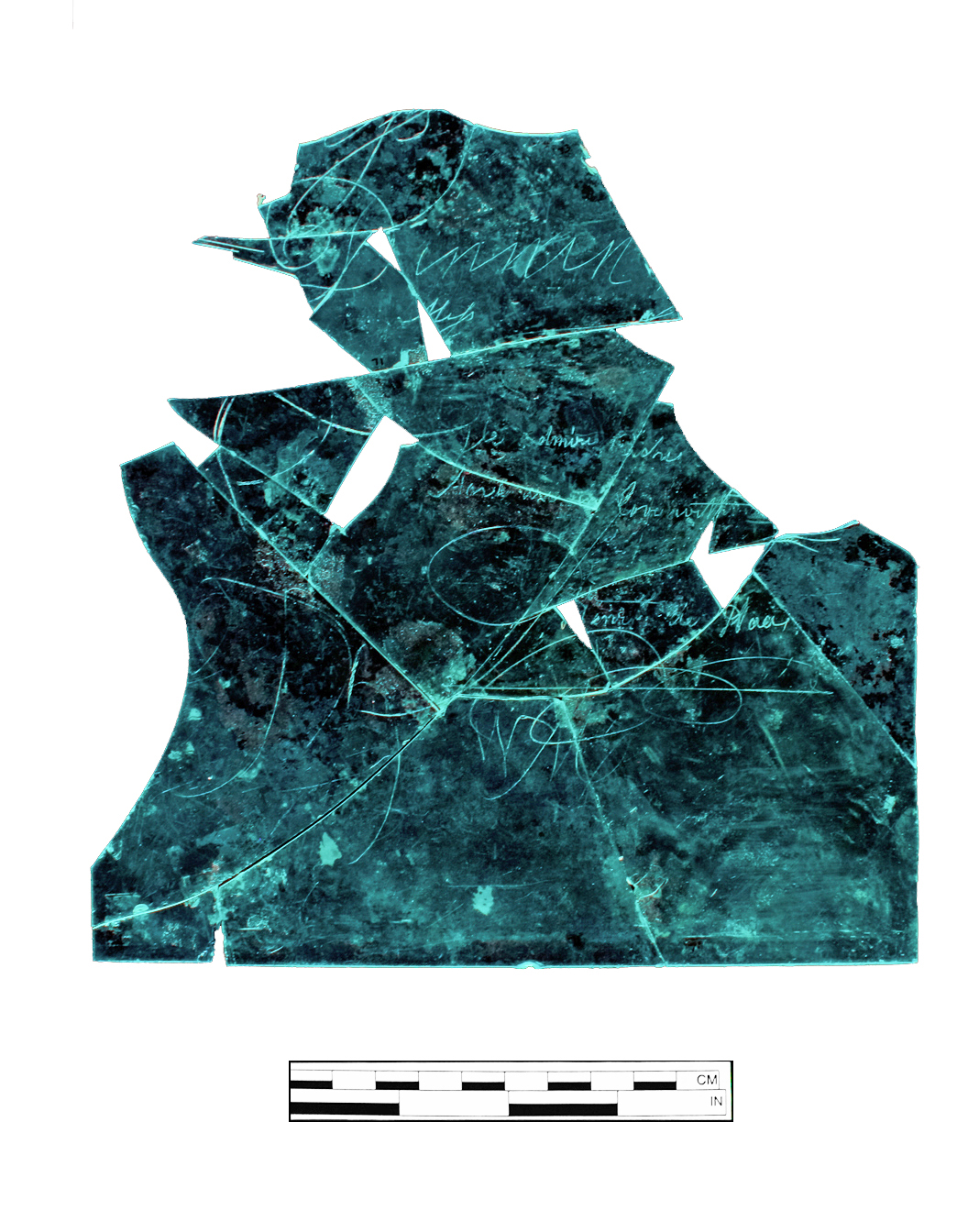Artifact of the Month – April 2016
To Artifact of the Month Index
To PAF Home
Early Philadelphia Graffiti

Archaeologists discovered this pane of window glass in 2014 during construction of the new Museum of the American Revolution being built in the City of Philadelphia, Pennsylvania. The glass was found in a privy (outhouse shaft) excavated at the site (located at 3rd and Chestnut Streets) but its significance wasn’t fully recognized until the archaeologists returned to their laboratory to catalogue the recovered objects. There it was noticed that some of the window glass fragments bore writing (scratched graffiti). In total, three window panes were partially reconstructed from approximately 1,500 fragments of window glass found in this privy.
The inscribed window panes were originally part of a house that once stood at No.30 Carter’s Alley. A Quaker couple, Mary and Benjamin Humphreys, purchased the house in July of 1776 and apparently ran a tavern there. The names of three individuals, presumably clients of the Humphreys’ tavern, were identified on one of the window panes – Dinnin, Henri de Haas, and “WM”, which likely belonged to the dance master William McDougall who lived next door.
Beneath the Haas signature was an inscribed phrase that he may have been likewise responsible for writing: “We admire riches, And are in love with i…[dleness]”. This phrase comes from a speech made by the Roman statesman, Cato the Younger, to the Senate in 63 BCE during a debate over the fate of a group of senior Roman figures who had been plotting to overthrow the Republic. His speech, delivered in response to one by Julius Caesar that had preceded it, was recorded by the Roman historian Sallust. The latter’s work was translated into English in 1734 by an English schoolmaster but it wasn’t until 1744 that the speech became more widely known after parts were re-used to critique the British political system. Translations of this quote vary and as a result the inscription on the Humphreys’ window can be traced directly to this 1734 translation and the writings which then used it.
In its original context the phrase was a condemnation of the moral corruption of Cato’s fellow Senators, in particular Caesar. The ideals that Cato stood for came to be celebrated during the Enlightenment and were popularized in the play, Cato, A Tragedy, that was well known to the nation’s founders. Its themes of individual liberty versus government tyranny and the lack of morality in politics no doubt influenced the American colonists and resonated within the Republican cause. The significance of this quote to the Philadelphian who scratched it on the window pane provides a glimpse into the lively tavern culture of the day. The pane will be on display in the new museum when it opens in 2017.
This Artifact of the Month was contributed by Juliette Gerhardt, Commonwealth Heritage Group.
by admin